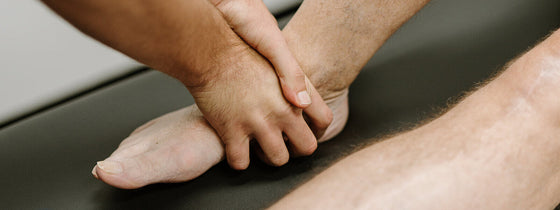Did you know that what you leave out of your diet is often as important as what you include?
A great example of this is dietary fat. While there can be an overwhelming amount of ‘low fat’ and ‘no fat’ products on supermarket shelves, they aren’t always the best options for a healthy diet.
Dietary fat is an important part of a healthy diet, and is particularly important for our eyes, skin and brain. Cutting fat out of our diet completely also deprives our system of fat-soluble vitamins like A, D, E and K.
Including small amounts of unsaturated fats in what you eat, daily, can also contribute to healthy cholesterol levels, reduce inflammation, and build stronger cell membranes in the body.
This essential nutrient allows our body to function fully – fat stored in body tissues is critical for energy storage and metabolism, body temperature regulation and the insulation of vital organs.
Nutrition experts classify fats into three main groups: saturated, unsaturated and trans fats.
Saturated fat
These fats have single bonds between their molecules and are ‘saturated’ with hydrogen molecules. They tend to be solid at room temperature.
Food sources that contain high levels of saturated fat include meat and dairy products, such as:
Unsaturated fat
Unsaturated fats contain one or more double or triple bonds between the molecules. These fats are liquid at room temperature in oil form. They also occur in solid foods. This group further breaks down into two categories – called monounsaturated fats and polyunsaturated fats.
Dietary sources of unsaturated fats include:
Mediterranean diets are typically high in fat but have links to good heart health.
Trans fats
These fats take liquid form that convert to solid fats during food processing techniques.
Some meat and dairy products contain small amounts of trans fats, but they play a larger role in processed foods.
Examples of food products that may still contain trans fats include cookies, crackers, donuts & fried foods.
Most health organisations and dietary experts suggest eating saturated fats in moderation and replacing them with unsaturated fats, when possible. We recommend reducing your intake of saturated and trans fat consumption, as these can contribute to high cholesterol levels – a risk factor in heart disease.
Tips for a fat-healthy diet
Some easy ways to balance your dietary intake of fats include:
We asked the OHL team what their favourite way to include good fats in their diet –
‘I use extra virgin olive oil when I’m cooking, and try to include fish or seafood twice a week’ Darcy, Physiotherapist
‘ I love avocado! On toast, in salads or instead of butter on sandwiches.’ Mel, Administration
‘Nut spreads are my go-to. I love almond, peanut and tahini. Almond butter on apple slices are a delicious snack’ Emily, Dietitian
These options can all support brain development, strengthen the immune system, and improve heart health.
The Heart Foundation have collated a great range of delicious recipes for all occasions. With a collection of recipes for breakfast, lunch, dinner, snacks, desserts – even condiments – they prove that heart healthy eating doesn’t mean a bland and boring menu! (link to Heart Foundation recipes)
If you’re feeling overwhelmed with information, are curious about how you can incorporate a healthier menu into your life, or just feel stuck in a recipe rut – OHL’s in-house Dietitian, Emily, can help you develop great eating habits that work for your individual needs and lifestyle. She can provide you with specific information around the appropriate amounts and types of fats to consume daily – also teaching you how to read the, often confusing, labels on everyday foods, so that you are empowered to choose the foods that are best for you and your family.
If you would like to reduce the risk of heart disease through sustainable lifestyle changes, book an appointment (link to bookings) with our Dietitian, Emily, (link to Emily) or one of our expert team of Physiotherapists (link to team) to get you moving towards the most optimal version of you. (link to Heart Starter blog? – need to edit)
References/Further Reading:

If you're experiencing back or neck pain with neurological signs and symptoms, a thorough neurological examination is crucial for accurate assessment and effective treatment. In this Optimal Tip learn more about what we mean by completing a neurological exam!

Squats, deadlifts, and calf raises are key movement patterns that should be part of every strength and conditioning program—regardless of age and activity level. These functional movements support joint health, improve posture and balance, and reduce the risk of injury while building strength where it matters most.

A ganglion cyst is a fluid-filled swelling that typically forms over a joint or tendon sheath, causing discomfort and pain, especially when pressing against nerves or joints. Proper assessment and treatment, including physiotherapy, are essential for managing symptoms and improving function in the presence of a ganglion in your hand, foot, or wrist.